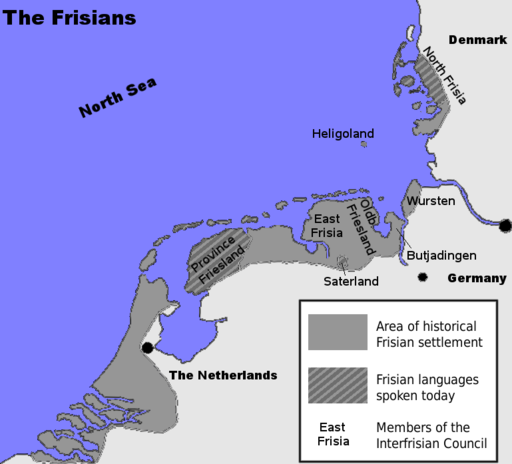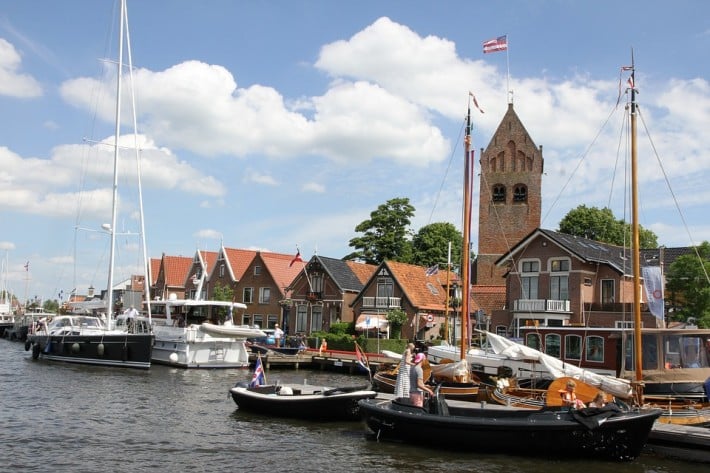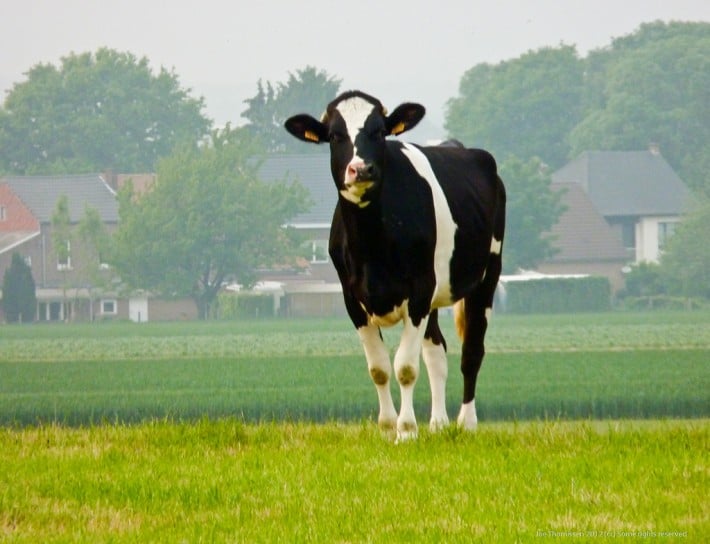Frisian: A European Language of the Future?
We recently looked at the various forms of German, from standard German all the way over to Swiss. Now, we’d like to take a further look at Frisian; a language often accused of being merely a dialect of German instead of a language in its own right, and one that is one of the closest living languages to English. Could Frisian see a rise in popularity, or even be a viable option for a Europe-wide language of our future? Take a look!
No, that’s ‘Friesian’ via Flickr
Briefly
Frisian is an Indo-European Germanic language that is spoken by around 500,000 people predominantly in the Netherlands and Germany. Technically, it is a group of closely related languages rather than just one, which means the version of Frisian you might hear is determined geographically. West Frisian is spoken in the Netherlands where it is generally referred to as just the Frisian language. Saterland Frisian, also known as East Frisian language, is spoken in Lower Saxony, Germany. And the North Frisian language is spoken in Schleswig-Holstein, Germany.
Saterland and North Frisian are officially recognised minority languages in Germany, and West Frisian is an official language in the Netherlands alongside Dutch. The Frisian language was first spoken as a language of the European Parliament in June 2017, and though this so-called farmers language has relatively few speakers, there are champions promoting and protecting Frisian so that it doesn’t become extinct. Recent years have seen efforts in the Netherlands to promote the language through its official status and to teach it in schools, and Frisian is also represented in bilingual street signs in the areas of both Germany and Netherlands where it is spoken.
A common ancestor
Frisian is said by linguists to be the most closely related living language to English. Old English and Old Frisian use similar phonology, and both saw a loss of the Germanic nasal sound sometime during the Early Middle Ages. The following rhyme is often cited to show a similarity between the two languages: bûter, brea en griene tsiis is goed Ingelsk en goed Frysk (butter, bread, and green cheese is good English and good Frisian).

Photo via Wikimedia
Frisian broke away from English some 500 years ago, with the influence of Dutch and Low German on Frisian, and Norman French on English. Mutual intelligibility between the two languages has lessened over the centuries, though there are still words that are similar if not true cognates. Alongside Dutch and German since these two share that common ancestry:
Frisian, English, Dutch, German
A common successor?
Europe is changing. Brexit, Poland’s rise in nationalism, Italy’s so-called populist revolution during its recent elections, Denmark’s recent plans for double punishment for criminals living in ghetto areas that screams of racial and ethnic profiling to list but a few examples of the way our world is shifting. All these issues seem divisive, when now, more than ever, we need the exact opposite. Call us hopeless optimists if you will, but we see language as a way to keep us together instead of dividing us further.
If English might one day lose its prominence in the European Union, here is why Frisian might be a decent contender for its succession. It’s already a bridge in some ways between English, Dutch, and German, so could be viewed as an amalgamation of three languages instead of the loss of one. It is spoken by a small group of people who do not dominate any part of the European Union for policies, wealth, or resources, and therefore stands a better chance as a language of equality than, say, French, or German.

Photo via Pixabay
Learning a new language? Check out our free placement test to see how your level measures up!
For English speakers, when we have to loosen our grip on our monolingualism, a language that is in some ways still quite close to home might be easier for us to wrap our heads (and tongues) around, than, perhaps, Spanish, or Portuguese. Wat is jo namme? is not a giant leap from what is your name? at all, and neither would it kill us to say tsiis rather than cheese for our photos. It might also be a very British thing to do, to deliberately avoid learning ‘big’ European languages as a snub; we’re petty like that sometimes.
Frisian might seem a leap when it comes to choosing a European language for its minority of speakers. But with its roots in so many branches of the Indo-European family tree, perhaps it’s not a far-fetched one at all!




